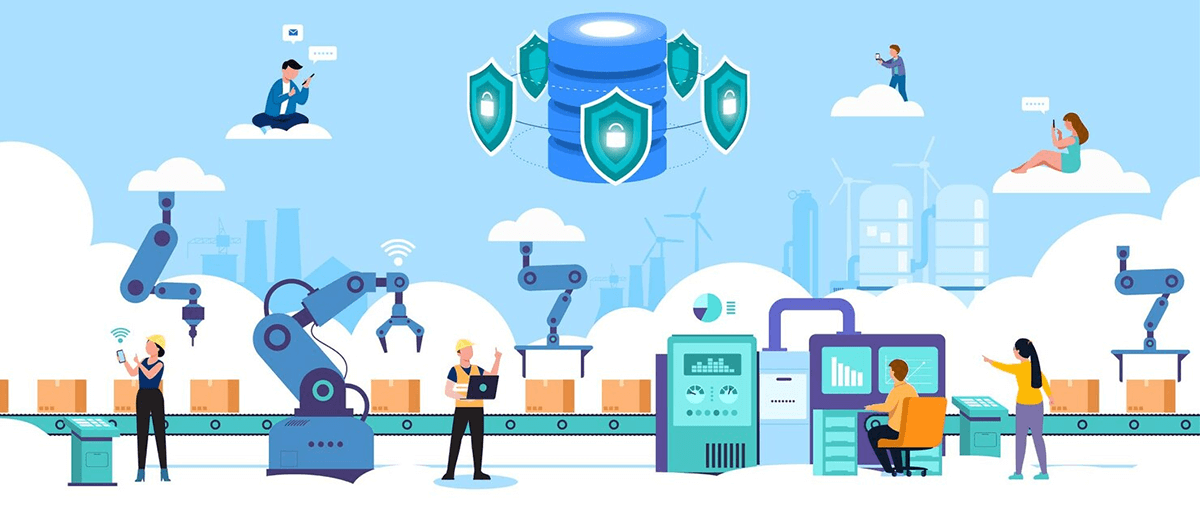Introduction:
In today’s fast-paced and competitive business landscape, organizations are constantly seeking ways to improve efficiency, reduce costs, and enhance productivity. Robotic Process Automation (RPA) has emerged as a transformative technology that addresses these challenges head-on, empowering businesses across industries to automate repetitive, rule-based tasks and streamline operations.
What is RPA Software?
RPA software, also known as “ bots” or digital assistants, is a type of automation technology that mimics human actions within digital systems. These software robots can interact with applications, websites, and other digital interfaces, performing tasks that are typically handled by human employees.
Understanding RPA
At its core, RPA involves the use of intelligent software bots to automate repetitive, rule-based tasks within business processes. These digital workers emulate human actions, interacting with various systems and applications to execute tasks such as data entry, transaction processing, and communication.
The distinguishing feature of RPA lies in its accessibility; it doesn’t demand extensive coding or complex integration’s making it an adaptable and cost-effective solution for businesses across diverse industries.
Benefits of RPA
Robotic process automation (RPA) software is rapidly transforming the way businesses operate, offering a multitude of benefits that enhance efficiency, reduce costs, and improve overall productivity. RPA empowers organizations to streamline operations, minimize errors, and optimize resource allocation by automating routine, rule-based tasks.
Efficiency and Cost Savings: RPA automates time-consuming tasks, reducing the need for manual labor and associated costs. This allows businesses to reallocate resources to strategic initiatives and focus on value-added activities.
Accuracy and Compliance: RPA eliminates human errors, ensuring data integrity and regulatory compliance. This is particularly important for businesses operating in highly regulated industries.
Enhanced Customer Experience: RPA automates customer-facing processes, leading to quicker response times and improved customer satisfaction. This contributes to a seamless and responsive customer experience.
Enhanced Customer Experience: RPA automates customer-facing processes, leading to quicker response times and improved customer satisfaction. This contributes to a seamless and responsive customer experience.
How RPA Benefits Businesses
1. Task Automation:
RPA software excels in automating tasks that follow predefined rules and logic. From data entry to report generation, organizations can rely on bots to execute tasks accurately and efficiently, freeing up human resources for more complex endeavors.
2. Seamless System Integration:
RPA seamlessly integrates with existing systems and applications, ensuring a cohesive automation process without the need for extensive modifications. This adaptability is crucial for businesses with diverse technological ecosystems.
3. Enhanced Data Processing:
RPA accelerates data processing by swiftly extracting, organizing, and analyzing data. This not only expedites decision-making processes but also contributes to a more agile and data-driven organizational culture.

4. Industry-Specific Examples:
Finance and Banking: In the finance sector, RPA automates tasks like invoice processing, reconciliation, and compliance checks, ensuring accuracy, reducing processing times, and enhancing regulatory adherence.
Healthcare: RPA streamlines administrative tasks in healthcare, including appointment scheduling, billing, and claims processing. This not only optimizes workflows but also contributes to improved patient care.
Manufacturing: RPA is leveraged in manufacturing for inventory management, order processing, and quality control, leading to heightened efficiency on the production floor and improved product quality.
Customer Service: Across various industries, businesses use RPA for customer service tasks, including ticket routing, data retrieval, and response generation. This results in quicker and more accurate support, enhancing overall customer satisfaction.
Choosing the Right RPA Software for Your Business
Selecting the appropriate RPA software for your business requires careful consideration of factors such as scalability, ease of integration, adaptability to industry-specific needs, and a user-friendly interface. Engaging with RPA experts and conducting a thorough analysis of your organization’s requirements is essential to ensure optimal implementation and long-term success.

Why React Native is the Right Choice for Your Next App
Conclusion
Embrace the Future of Automation with RPA
In conclusion, RPA software is not merely a tool for automating tasks; it’s a strategic investment in the future of business operations. The benefits extend far beyond efficiency gains, encompassing cost savings, employee empowerment, and improved customer experiences. As industries continue to navigate the complexities of a rapidly evolving business landscape, RPA stands as a beacon, guiding organizations toward a future of automation-driven success.
Are you ready to embark on a transformative journey with RPA? Explore the possibilities, automate tasks, and position your organization at the forefront of a future where efficiency knows no bounds. The era of RPA is here—embrace it with open arms!




